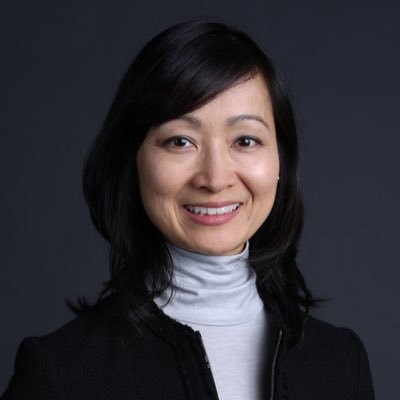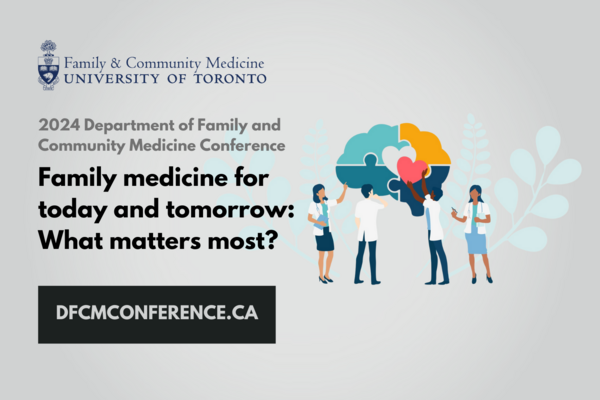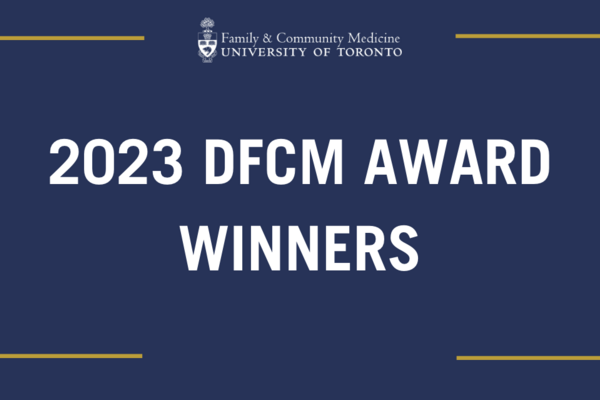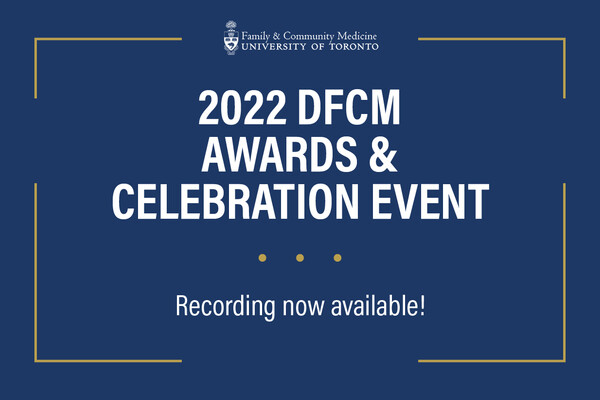A home for academic hospitalists: Announcing the DFCM Division of Hospital Medicine

Last year, the University of Toronto Department of Family and Community Medicine (DFCM) announced four new Academic Divisions, including our new Division of Hospital Medicine. Since then, the division has worked quietly to create the foundations of an academic home for hospitalists within our department.
We recently spoke with Dr. Christine Soong, the inaugural head of the Division of Hospital Medicine, about the relationship between family medicine hospitalists and their office-based counterparts, why it’s important for DFCM to have this division and the work they’ve accomplished so far.
Dr. Soong is a family physician, an academic hospitalist and an Associate Professor at DFCM and the Division of Internal Medicine at the University of Toronto. She is also the Medical Director of Quality and Safety at Sinai Health and the Implementation Lead at Choosing Wisely Canada. Her research and quality improvement (QI) interests include patient safety, high-value care, novel models of inpatient care and transitions of care.
What is the relationship between family medicine hospitalists and office-based or community-based family physicians?
Family medicine is a specialty that focuses on general practice. Hospitalists also focus on general practice, but we are hospital-based specialists. A family medicine-trained hospitalist may not necessarily receive different training or have different credentials from their office-based counterparts, but their competencies differ due to the setting in which they practice. For example, as hospitalists we deal with acute care management on a daily basis, whereas typical family practice office-based physicians for the most part, do not provide day-to-day care to those who are acutely ill requiring hospitalization. So, we practice a slightly different type of medicine daily. But that’s why family medicine is such a great field, we are all specialist generalists in so many different ways.
Another difference is in the length of our relationship with the patient. An office-based family practitioner often establishes a life-long relationship with their patient, whereas a hospitalist works with a patient over short, intense periods, and likely will not see the patient again once they’re discharged from hospital. However, since family medicine hospitalists have also trained and worked as family doctors, we’re very familiar with issues around transitions of care. During the periods where patients transition between care environments, they’re very vulnerable because they’re no longer supported by a well-resourced hospital environment and are expected to manage everything on their own. Family medicine hospitalists are naturally positioned to work with community-based physicians to close these gaps in care because we are part of the team that managed the patient’s most recent health issues and co-created care plans they’ve been sent home on.
Why do you think it’s important for DFCM to have a Division of Hospital Medicine?
We know that to be successful in academia, and to advance the practice of academic family medicine in all its forms, there needs to be infrastructure, support, and a department to further the academic goals of physicians.
In Toronto, there is a very large number of family-medicine trained hospitalists who are working in academic centres, teaching, participating in quality improvement (QI) initiatives and doing other academic work. So far, these hospitalists have been engaging in academic work somewhat on their own, often in isolation or in small group settings. DFCM’s Division of Hospital Medicine creates an academic home for these hospitalists where they can be recognized, mentored, supported and ultimately, successful.
What have you achieved over the past year and what do you hope to achieve in future?
Since we’ve created the division, we have appointed an advisory committee and have started an inaugural grand round series, which we hope to continue holding quarterly. We’re also thinking about how we can have more community of practice events – currently, it’s limited by COVID-19, but in the future, we hope we can have in-person gatherings as well.
We’ve also been working with Holly Downey, the Academic Appointments Administrator at DFCM, to provide university appointments for hospitalists who are working in an academic role in the community and elsewhere. For those who with new appointments, we are also looking at ways to support them with faculty development resources: family medicine hospitalists and office-based academic family physicians have different academic needs, so currently, there may not be a lot of mentorship or support available to address this.
Ultimately, our goal is to continue to expand and advance the understanding and practice of hospital medicine. Our scope is as big as we allow it to be, we hope that this new division and the community it enables will capture and represent the breadth and depth of hospital work in DFCM.
News



